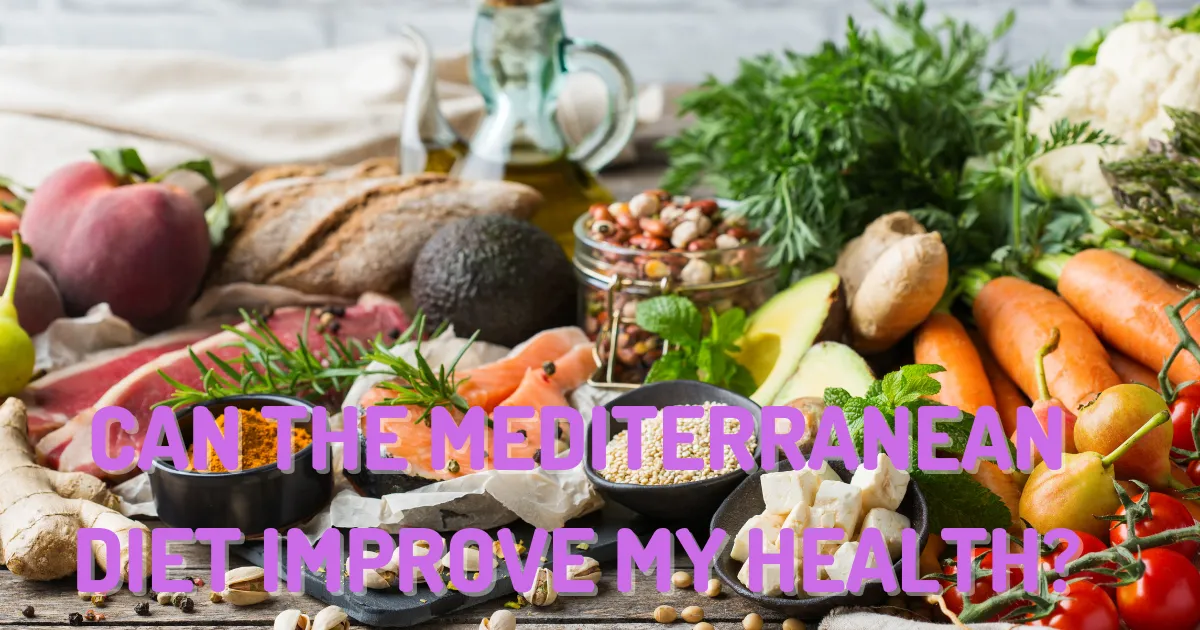What is the Mediterranean Diet?
The Mediterranean Diet’s low carb is often called “The Healthiest Diet in the World” because of its healthy weight loss benefits. As the name implies, the Mediterranean Diet has been enjoyed by people living in the Mediterranean region, particularly Italy, Israel, and Greece, for thousands of years. It is now being adopted by many Americans worldwide.
Mediterranean Diet Meal Plan for Healthy Living & Lose Weight
Mediterranean diet meal plan for weight loss: A healthy eating routine is a more significant part of a healthy eating style than a confined eating regimen, and it has additionally been connected to more solid bones, a better heart, and longer life.
The eating routine involves straightforward, plant-based cooking. Most of every feast is zeroed in on soil products, whole grains, beans, and seeds, with a couple of nuts and a heavy emphasis on olive oil.
- Like spread, fats other than olive oil are eaten occasionally, if by any means, and sugar and refined food varieties are saved for extraordinary events.
- Red meat is utilized sparingly, usually to season a dish.
- Eating omega-3 oil-stuffed fish is encouraged, while eggs, dairy, and poultry are consumed in much more modest segments than conventional Western eating.
- Lifestyle changes essential for the eating routine incorporate eating with loved ones, associating over dinners, carefully eating the most loved food varieties, and careful development and exercise.
Mediterranean Diet Food List
- Vegetables: tomatoes, broccoli, kale, spinach, onions, cauliflower, carrots, Brussels sprouts, cucumbers, potatoes, sweet potatoes, turnips
- Fruits: apples, bananas, oranges, pears, strawberries, grapes, dates, figs, melons, peaches
- Nuts, seeds, and nuts: almonds, walnuts, macadamia nuts, hazelnuts, cashews, sunflower seeds, pumpkin seeds, almond butter, peanut butter
- Legumes: beans, peas, lentils, pulses, peanuts, chickpeas
- Whole grains: oats, brown rice, rye, barley, corn, buckwheat, whole wheat bread, and pasta
- Fish and seafood: salmon, sardines, swordfish, trout, tuna, mackerel, shrimp, oysters, clams, crab, mussels
- Poultry: chicken, duck, turkey
- Eggs: chicken, quail, and duck eggs
- Dairy: cheese, yogurt, milk
- Herbs and spices: garlic, basil, mint, rosemary, sage, nutmeg, cinnamon, pepper
- Healthy fats: extra virgin olive oil, olives, black olives, avocados, and avocado oil
Foods to Limit in Mediterranean Diet
- Added sugar: added sugar is found in many foods but is incredibly high in soda, candies, ice cream, table sugar, syrup, and baked goods
- Refined grains: white bread, pasta, tortillas, chips, crackers
- Trans fats: found in margarine, fried foods, and other processed foods
- Refined oils: soybean oil, canola oil, cottonseed oil, grapeseed oil
- Processed meat: Processed sausages, hot dogs, deli meats, beef jerky
- Highly processed foods: fast food, convenience meals, microwave popcorn, granola bars
You should limit these processed foods and ingredients when following the Mediterranean diet:
The diet examined by most studies is high in healthy plant foods and relatively low in animal products and meat. However, eating fish and seafood is recommended at least twice a week.
The Mediterranean lifestyle also involves regular physical activity, sharing meals with other people, and minimizing stress levels.
You can include a mix of fresh, frozen, dried, and canned fruits and vegetables, but check package labels for added sugar and sodium.
Can the Mediterranean diet improve my health?
Yes, the Mediterranean diet can significantly improve your health! This eating pattern is inspired by the traditional dietary habits of countries bordering the Mediterranean Sea, such as Greece and Italy. It’s widely regarded as one of the healthiest diets in the world, and for good reason. Here’s how it can benefit your health:
Heart Health
The Mediterranean diet is rich in heart-healthy fats, particularly from olive oil, nuts, and fatty fish. These sources of monounsaturated and omega-3 fatty acids can help reduce harmful cholesterol levels, lower blood pressure, and decrease the risk of heart disease.
Weight Management
The diet emphasizes whole, unprocessed foods, which are naturally lower in calories and higher in nutrients. Focusing on fruits, vegetables, whole grains, and lean proteins can help you manage your weight effectively, making it easier to maintain a healthy weight or achieve weight loss goals.
Reduced Risk of Chronic Diseases
The Mediterranean diet contains various plant-based foods’ antioxidants, vitamins, and minerals. This nutrient-dense diet helps reduce inflammation and oxidative stress, lowering the risk of chronic diseases such as type 2 diabetes, certain cancers, and neurodegenerative diseases like Alzheimer’s.
Improved Mental Health
There is growing evidence that the Mediterranean diet can positively impact mental health. The diet’s emphasis on healthy fats, particularly omega-3s and various fruits and vegetables, supports brain function and may reduce the risk of depression and cognitive decline.
Better Blood Sugar Control
The Mediterranean diet includes plenty of fiber-rich foods like whole grains, legumes, and vegetables, which help regulate blood sugar levels. This can be particularly beneficial for people with type 2 diabetes or those at risk of developing the condition.
Longevity
Studies have shown that those who follow a Mediterranean diet live longer. This is likely due to the diet’s overall impact on reducing the risk of chronic diseases and promoting a healthier lifestyle.
Sustainable and Enjoyable
One of the Mediterranean diet’s most significant advantages is its sustainability. Unlike restrictive diets, the Mediterranean diet is enjoyable and easy to stick with because it includes various delicious foods. It encourages moderation rather than deprivation, making it a long-term lifestyle choice rather than a temporary fix.
In conclusion, the Mediterranean diet is more than just a way to eat; it’s a lifestyle that promotes overall health and well-being. Whether you want to improve your heart health, manage your weight, or reduce the risk of chronic diseases, the Mediterranean diet offers a balanced, enjoyable, and sustainable eating approach that can profoundly impact your health.
The Hidden Health Benefits of Black Olives: A Nutrient-Packed Superfood Unveiled
Unveiling the secret powerhouse – black olives! Packed with myriad health benefits, these nutrient-dense superfoods are a culinary delight with a hidden treasure trove of goodness. From boosting heart health to enhancing brain function, the humble black olive has much to offer beyond its savory taste.
Dive into the world of nutrition as we unravel the remarkable advantages of incorporating black olives into your diet. Discover how these tiny treats are packed with antioxidants, healthy fats, and essential minerals that can work wonders for your well-being. Get ready to elevate your meals and health with the incredible benefits of black olives.
Incorporating black olives into your diet can yield a multitude of health benefits. One of the most significant advantages is their role in promoting heart health. The monounsaturated fats found in black olives help reduce the risk of heart disease by lowering LDL (bad) cholesterol levels while raising HDL (good) cholesterol. This balance is crucial for maintaining a healthy cardiovascular system and can lead to improved circulation and overall heart function.
Another notable benefit is the anti-inflammatory properties of black olives. Chronic inflammation is linked to numerous health issues, including arthritis, diabetes, and heart disease. The compounds found in black olives, such as oleuropein, have been shown to have anti-inflammatory effects, which may contribute to reduced risk of these chronic conditions. Regular consumption of black olives can support a healthy inflammatory response in the body.
Black olives also support brain health. The antioxidants present in black olives, particularly vitamin E, help protect brain cells from oxidative stress, which can lead to cognitive decline and neurodegenerative diseases such as Alzheimer’s. Additionally, the healthy fats in black olives are essential for maintaining brain function, as they aid in developing and repairing neuronal membranes. You can take proactive steps toward enhancing your cognitive function and overall brain health by including black olives in your diet.
Antioxidants play a vital role in maintaining health by neutralizing free radicals in the body. Free radicals are unstable molecules that can cause oxidative stress, leading to cellular damage and contributing to various diseases, including cancer and heart disease. Black olives are particularly rich in antioxidants, including vitamin E, oleuropein, and hydroxytyrosol, all of which have been studied for their health-promoting properties.
Vitamin E is a prominent antioxidant found in black olives, known for protecting cells from oxidative damage. This vitamin not only supports skin health but also helps to reduce the risk of chronic illnesses. Oleuropein, another key antioxidant, has been shown to possess anti-inflammatory and antibacterial properties, making it beneficial for overall health. Research suggests that oleuropein may also positively impact blood pressure regulation, further supporting cardiovascular health.
Hydroxytyrosol, a lesser-known antioxidant found in black olives, has garnered attention for its potential health benefits. It is known for its potent antioxidant activity and has been linked to improved heart health, reduced inflammation, and even anti-cancer effects. By consuming black olives regularly, you can harness the power of these antioxidants to combat oxidative stress and promote long-term health.
Mediterranean Diet Meal Plan For Busy Lifestyles
Monday
Breakfast For Mediterranean Diet – Natural yogurt with honey, nuts, and dried fruit
Lunch – Bean and pepper salad
Snack – Hummus with cucumber and carrot sticks
Mediterranean Diet Dinner – Halibut with oven-roasted tomatoes, basil, and tapenade
Tuesday
Breakfast For Mediterranean Diet – Banana Smoothie
Lunch – Lentil fritters with raita
Snack – Mixed berries, such as strawberries, raspberries, blueberries, or cherries
Mediterranean Diet Dinner – Vegetarian moussaka
Wednesday
Breakfast – Poached egg and smashed avocado on wholemeal toast
Lunch – Greek salad
Snack – Red pepper and celery sticks
Dinner – Black pasta with cherry tomatoes and prawns
Thursday
Breakfast – Porridge with blueberries
Lunch – Veggie kebabs
Snack – Crispy kale (baked with salt and pepper)
Mediterranean Diet Dinner – Roasted peppers with spiced beans and goat’s cheese served with brown rice.
Friday
Breakfast – Grilled mushrooms and tomatoes with a side of wilted spinach
Lunch – Pesto roasted vegetables
Snack – Mixed sunflower and pumpkin seeds
Dinner – Grilled sea bass with Greek dressing
Saturday
Breakfast – Scrambled eggs and fresh tomatoes
Lunch – Roast pepper, olive, and feta pasta salad (with wholemeal pasta)
Snack – Mixed nuts
Mediterranean Diet Dinner– Cauliflower pizza
Sunday
Breakfast – Carrot and orange smoothie
Lunch – Greek-style stuffed chicken and salad
Snack – Whole grain pita bread dipped in olive oil or hummus
Dinner – Italian cabbage and white bean stew
Source & Credits:
https://www.goodto.com/recipes/bean-and-pepper-salad
https://www.healthline.com/nutrition/mediterranean-diet-meal-plan#foods-to-limit
https://hartfordhealthcare.org/about-us/news-press/news-detail?articleId=38194&publicid=395
https://edition.cnn.com/2023/01/03/health/mediterranean-diet-2023-best-diet-wellness/index.html


he Mediterranean diet emphasizes fruits, veggies, whole grains, and lean proteins. The magic is in its balance – tasty and nutritious! Plus, it’s good for your heart.
Nice, Great Tips for Eating Out Safely as a Diabetic
One of the key benefits of the Mediterranean diet is its potential to reduce the risk of cardiovascular issues, including stroke, heart attack, and death, by about 30% compared with other diets.
Mediterranean cuisine is known for its use of healthy fats, primarily olive oil. These fats can help improve heart health and reduce inflammation.
I love the Mediterranean diet for its focus on fresh produce and healthy fats! My energy levels feel so much better.